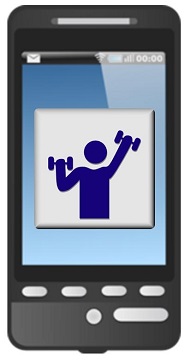The auto industry is seeing a notable shift in the way consumers are interacting with companies.
According to data from AAA, there has been a considerable shift in the decision people have been making with regards to car ownership and the use of mobile apps has played an important role in this new trend.
There was a time when nearly all teens got their drivers’ licenses as fast as they could, but this has changed.
Today’s teens are used to having mobile apps available that will help them to get the most out of public transportation. They know when the next bus will arrive and can plan around the train delay because they have an application that has alerted them to this information. Moreover, most cab companies, not to mention ride share programs, have apps that allow them to have a ride drive right up to their door. This has led to a massive change in the auto industry because the urgency to buy a car simply isn’t as strong, anymore.
For those who do get their licenses, many are using mobile apps to rent cars when they need them, instead of buying.
 For many people, the excitement of car ownership simply isn’t there, anymore. Cars are expensive, on their own, but the cost of maintaining them has been climbing, insuring them is more expensive than ever, and even parking has become cost-prohibitive in many places. The affordability of fuel isn’t enough to offset the expenses. Moreover, with streets that are continually jammed with cars, the sense of “freedom” isn’t nearly what it used to be.
For many people, the excitement of car ownership simply isn’t there, anymore. Cars are expensive, on their own, but the cost of maintaining them has been climbing, insuring them is more expensive than ever, and even parking has become cost-prohibitive in many places. The affordability of fuel isn’t enough to offset the expenses. Moreover, with streets that are continually jammed with cars, the sense of “freedom” isn’t nearly what it used to be.
AAA data shows that, two decades ago, about two out of every teens had a license by the time they turned 18. Currently, that figure has dropped to just over half of teens at that age. The trend started to change in 2010, through the popularity of smartphones and other mobile devices that could use apps to make it easy to grab a ride or rent one, while on the go, as well as to make public transit easier and more convenient to use. Instead of waiting at a bus stop and wondering when it will arrive, you can arrive at the last moment and know you’re on time.
While auto manufacturers have not been unaware of this trend, mobile apps don’t appear to have been helping them as much as they have been supporting the public transport, ride share and rental industries.

 In fact, a Flurry Analytics survey conducted last September on behalf of Yahoo Canada actually showed that health and fitness apps scored higher on their engagement rate. It is estimated that they are on 11 percent of
In fact, a Flurry Analytics survey conducted last September on behalf of Yahoo Canada actually showed that health and fitness apps scored higher on their engagement rate. It is estimated that they are on 11 percent of 